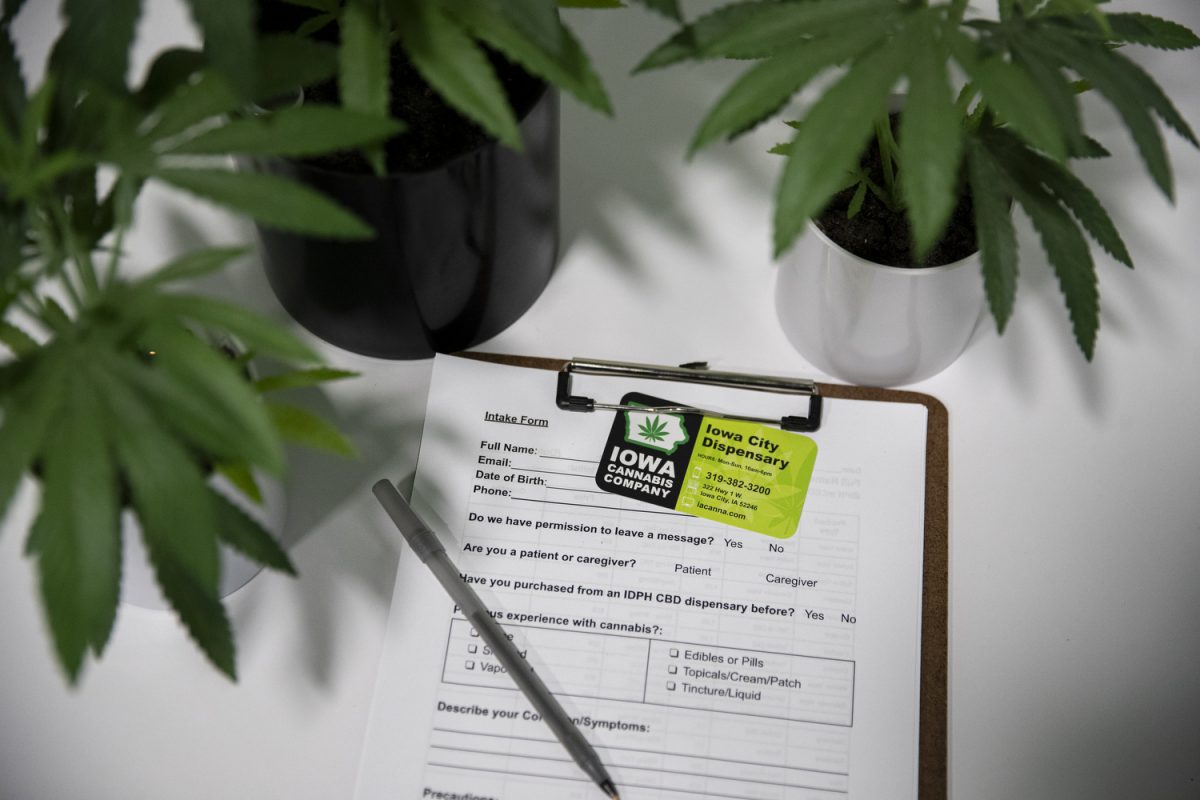More Iowa City residents are using cannabis cards this year as the state’s medical marijuana program gains traction.
According to the Medical Cannabidiol Program Update conducted by the Iowa Department of Health and Human Services, 26,018 cannabis cards were cumulatively issued in the state as of July 2022.
As of June 2023, the number has increased to 42,585 cards. The number of cards issued monthly in the state has increased as well. In July 2022 there were 1,377 cards issued and in June 2023, that number was 1,498.
In Johnson County, there are 800 active patients using cannabis through a card, according to a health and human services update.
To be eligible for a cannabis card, Aaron Boshart, chief operating officer of Iowa Cannabis Company located on 322 Highway 1 in Iowa City, said there are certain criteria patients must meet.
In Iowa, there is an active list of conditions on the health and human services website for who qualify a patient 18 years of age and older, for medical marijuana, including chronic pain, post-traumatic stress disorder, HIV, AIDS, and other medical conditions.
If a patient believes they qualify for a cannabis card, then they must go to a licensed physician and receive an attestation certification, Boshart said.
An attestation certification is granted once a licensed physician determines the patient is living with a qualifying condition.
Once signed, the certification is submitted online to the Iowa Health and Human Services website, and patients receive their cards in 24 to 48 hours, Boshart said. The cost of the card is $100 unless the patient is eligible for a reduced fee and must be renewed annually.
Joseph Mazza, CEO of Compassionate Clinics of America, said minors who qualify must have parental consent before being administered a card by the state.
What is medical marijuana?
“The terms medical marijuana and cannabis are used interchangeably,” Mazza said.
The cannabis plant holds a psychoactive component called tetrahydrocannabinol, commonly referred to as THC. Mazza said this component is the most effective for pain and is the primary difference between a medical cannabis product and an over-the-counter hemp product.
Boshart said cannabis primarily aids in symptom relief.
Hemp is derived from the cannabis plant but has a lower THC, typically of less than 0.3 percent. Therefore, it is able to be sold over the counter at pharmacies and gas stations Mazza said.
In terms of what can be bought at the dispensary itself, Boshart said patients will often purchase cannabis vape cartridges, inhalable concentrates, and capsules depending on age and patient desirability. Prices range from anywhere between $45-$85.
“It really comes down to product availability and the modalities that people want to consume,” Boshart said.
Dispelling fear
There is often a large stigma behind the use and recommendation of medical marijuana.
“Cannabis has been around for a long time and has been used in medicine,” Mazza said. “We want patients to know that we will sit down with them and answer any questions they may have to make sure they feel comfortable with their decision.”
Boshart said everything is approved through the Department of Health and that the program is extremely cautious in its administration.
“Cannabis can be used to help relieve symptoms and is offered in various forms,” Boshart said. “The educational program is the biggest hurdle right now, and when you ask most people many do not know much about it and have their own assumptions.”



